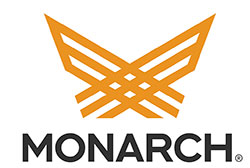This item has been supplied by a forage marketer and has not been edited, verified or endorsed by Hay & Forage Grower.

Why do we need farm automation?
Today’s farmers are expected to keep up with the demands of a growing population in a world where agricultural systems already occupy 43% of the world’s ice- and desert-free land. All the while, only 43% of U.S. farms are profitable despite massive investments in machinery and inputs.
With an expectation to increase outputs regardless of the limitations for arable land expansion and already slim profit margins, the farming industry is in need of new solutions. This is where farm automation will be key.
Ok, but how does it really help?
Farm productivity —Now more than ever, maximizing the remaining agricultural labor force while increasing worker safety is needed to be competitive in the produce market. Today, consistent skilled labor availability is a primary inhibitor to a profitable & safe farm. By removing the operator from hazards associated with the dull, dirty, and dangerous processes of farming, autonomous technologies can increase the value of each worker, conserve inputs, and allow farmworkers to work more efficiently without exposure to hazard zones.
Organic farming — Consumer demand for cleaner food is only growing. 58% of U.S. shoppers insist on organic food. However, organic farming requires more tractor work than conventional alternatives, often preventing farmers from earning those higher prices for their crops. By automating time-consuming organic practices, farmers can maintain profitability while keeping up with consumer preferences.
Addressing the challenges ahead
Connectivity — Of course, the road to farm automation is not without hurdles and challenges. Effective and streamlined operations that utilize automated processes require reliable on-farm connectivity — something that is hard to come by in rural America. At Monarch Tractor, for example, we address the connectivity issue through our Monarch base stations, offering reliable connectivity on-site for our driver-optional tractors to run smoothly.
Affordability — As with any new, exciting technology, the cost of adoption will be one of the biggest barriers for farmers. In order to ensure farms see a quick return on investment, Monarch utilizes cost-effective autonomous solutions like vision sensors as opposed to more expensive alternatives, promising both a robust and affordable tractor. Additionally, with a hydraulic top and side links, the MK-V is designed to work with farmers’ existing ecosystem of farm equipment, reducing extra costs from redundancies.
Got your interest? Prepare your farm for automation.
The possibilities for farm automation are only just beginning. From elevating labor to boosting farm productivity and improving agricultural sustainability, automated farm equipment is essential to transforming the industry for the betterment of farmers, consumers, and global food ecosystems.
Are you encouraged by the opportunities automation can offer? Do you want to be an early adopter of the latest innovations in agtech? Reach out to one of our specialists to learn more about what autonomy can bring to your farm.

